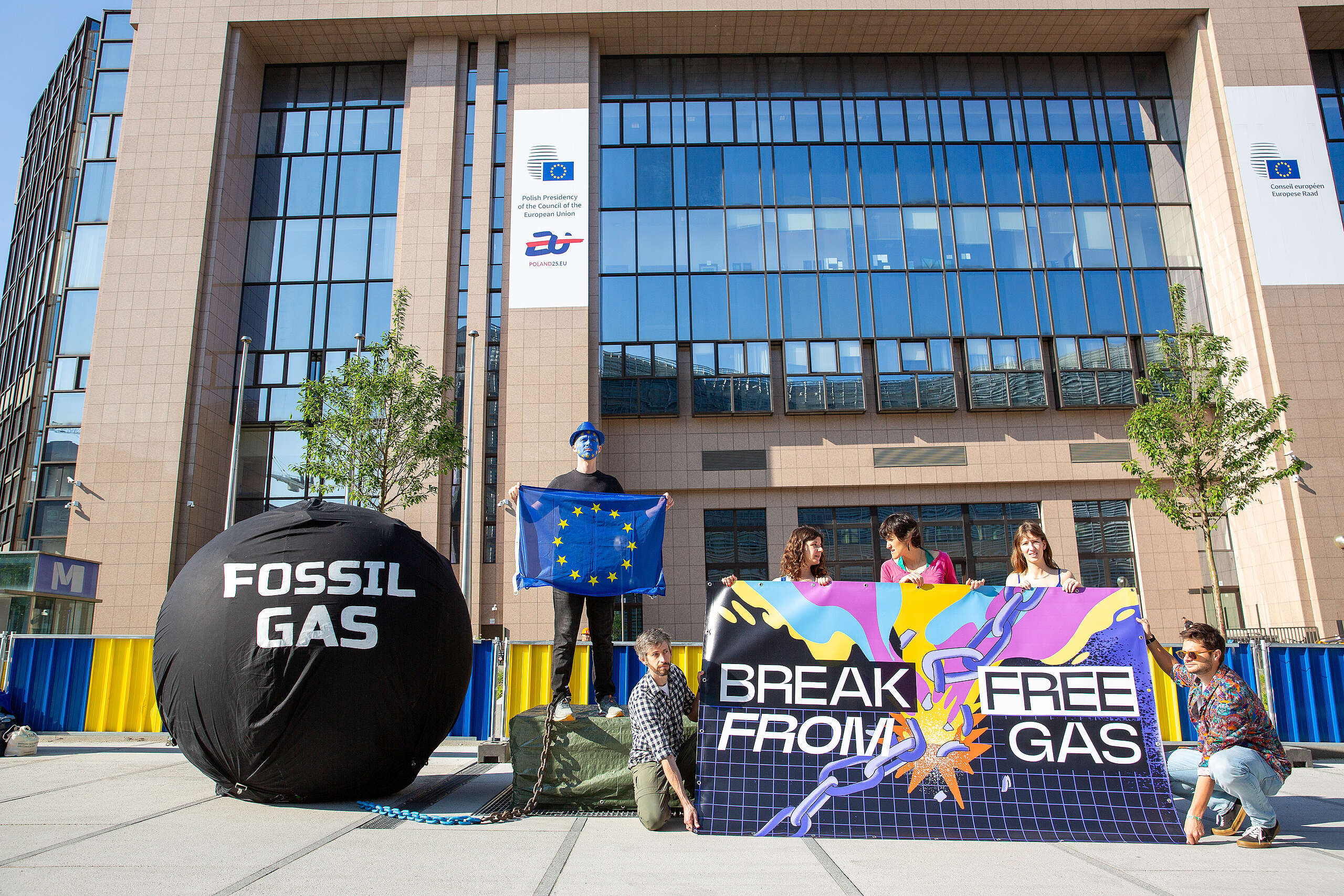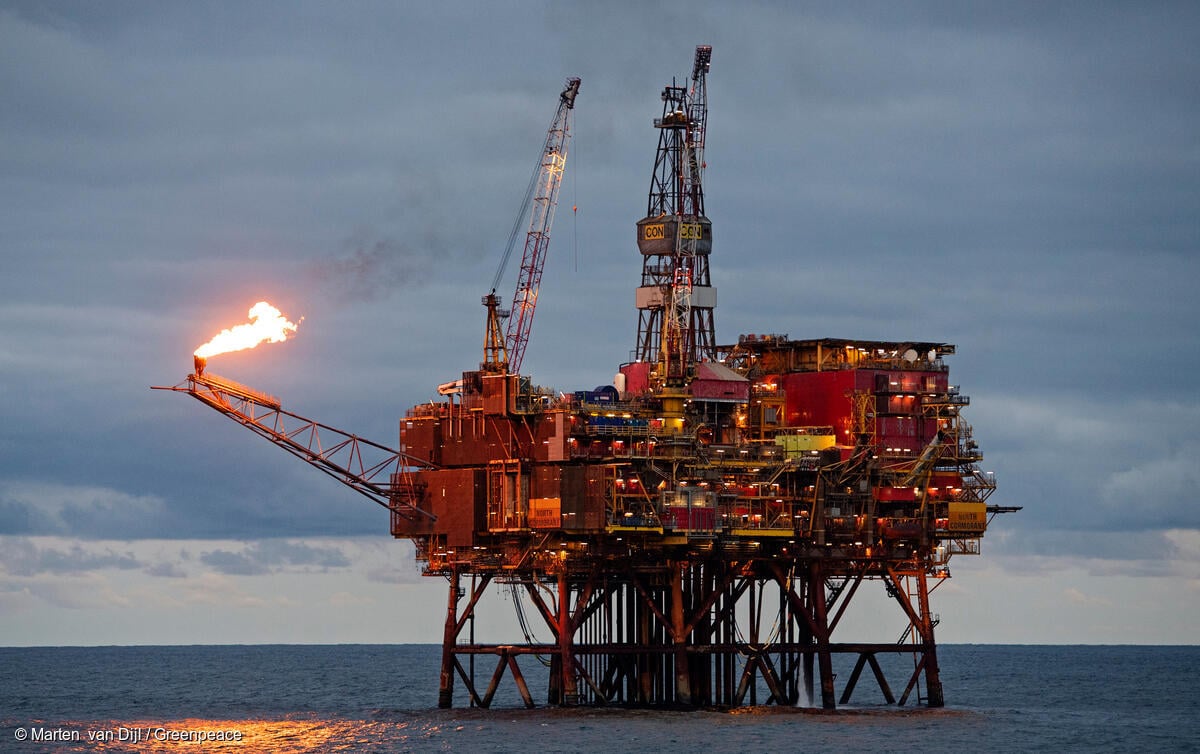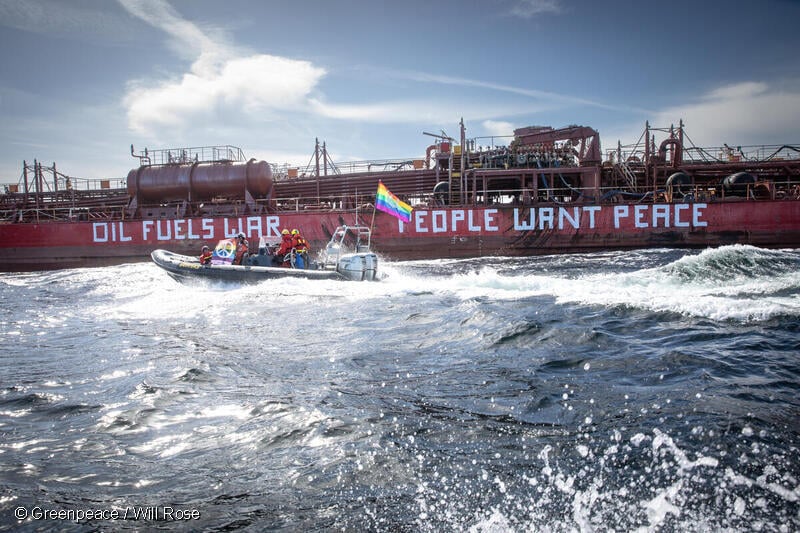
Every year when International Women’s Day comes around on the 8th of March, it’s now normal to see corporations jumping on the opportunity to make their brands appear more interested in gender equality.
Companies organise or sponsor Women’s Day events, or even repackage their products or run promotions aimed at women.
The fossil fuel industry is no different. As companies who have damaged their public image by ignoring the pollution they cause, International Women’s Day looks like a chance for them to gain some brownie points.
Many tweet about the career options women have in their industry:
Or they focus on the gender gap in research and technology:
Others run competitions, or sponsor cultural events like film launches:
Fossil fuel companies have for years tried ‘greenwashing’ – presenting themselves as concerned about the environment, saying fossil gas is a climate-friendly fuel, or investing a tiny percentage of their money in renewables to pretend they are part of the energy transition. Many of them even just change their logos or branding to look more ‘green’. So they have had some practice in appearing to care about the social impacts of their business, and now they have seen International Women’s Day as a chance to do some ‘genderwashing’ of their brands.
But the day-to-day business of these corporations – extracting, selling and burning fossil fuels – causes harm to women by polluting the environment and driving climate breakdown.
The extraction, transport and processing of fossil fuels has disastrous effects on the local environment. When there are spills and other accidents, the damage is multiplied.
When disaster strikes, it almost never strikes equally. People in the Global South, or disadvantaged communities in a given country, often bear the brunt of climate breakdown or air and water pollution. Disadvantaged communities, whether due to their economic status or lack of political power linked to gender or racial injustice, can be closer to the source of pollution or disaster so are hardest hit, and struggle more to recover than people with more wealth or power.
Women are often in more precarious social or economic situations within their communities, meaning that they can suffer more from the impacts of this pollution.
But as we well know, the impact of fossil fuel extraction and use goes far beyond accidents and spills.
The impacts of climate breakdown are wide ranging – from droughts and heatwaves to storms and floods – and very often these harm women the most.
Recent research has shown that, shockingly, climate breakdown is even making women more vulnerable to gender-based violence.
So our call to fossil fuel corporations and other climate-wrecking companies is this:
We don’t want to see your gender-washing posts on International Women’s Day.
The climate emergency and environmental destruction hurt women the most.
If you really care about women’s rights, stop making them worse.
—
Silvia Pastorelli is a climate and energy campaigner at Greenpeace’s European Unit in Brussels
—
Note: when we use the term ‘women’, we use in a sense that is inclusive of all people who identify as women — whether they are cisgender, transgender or non-binary.



